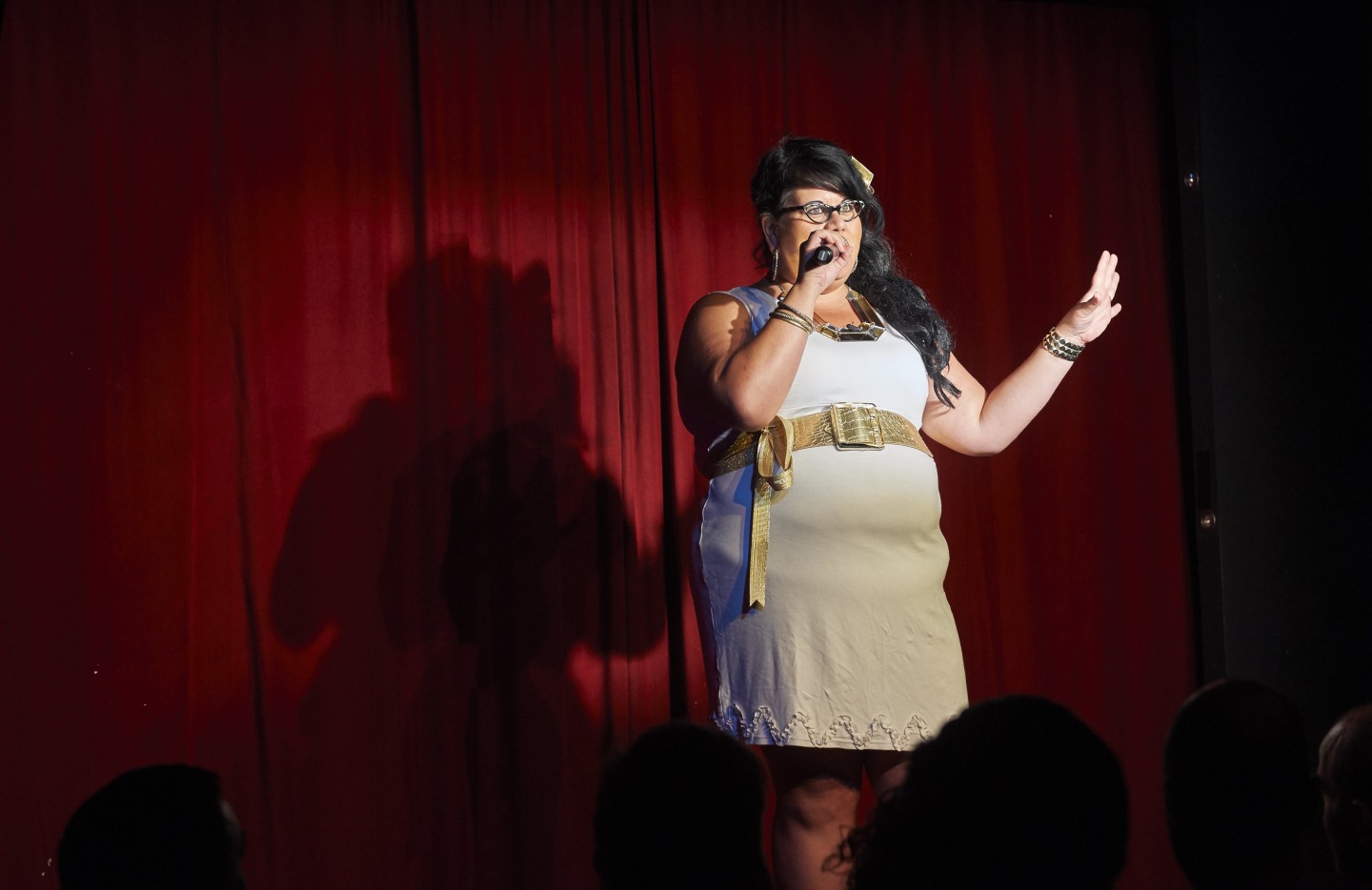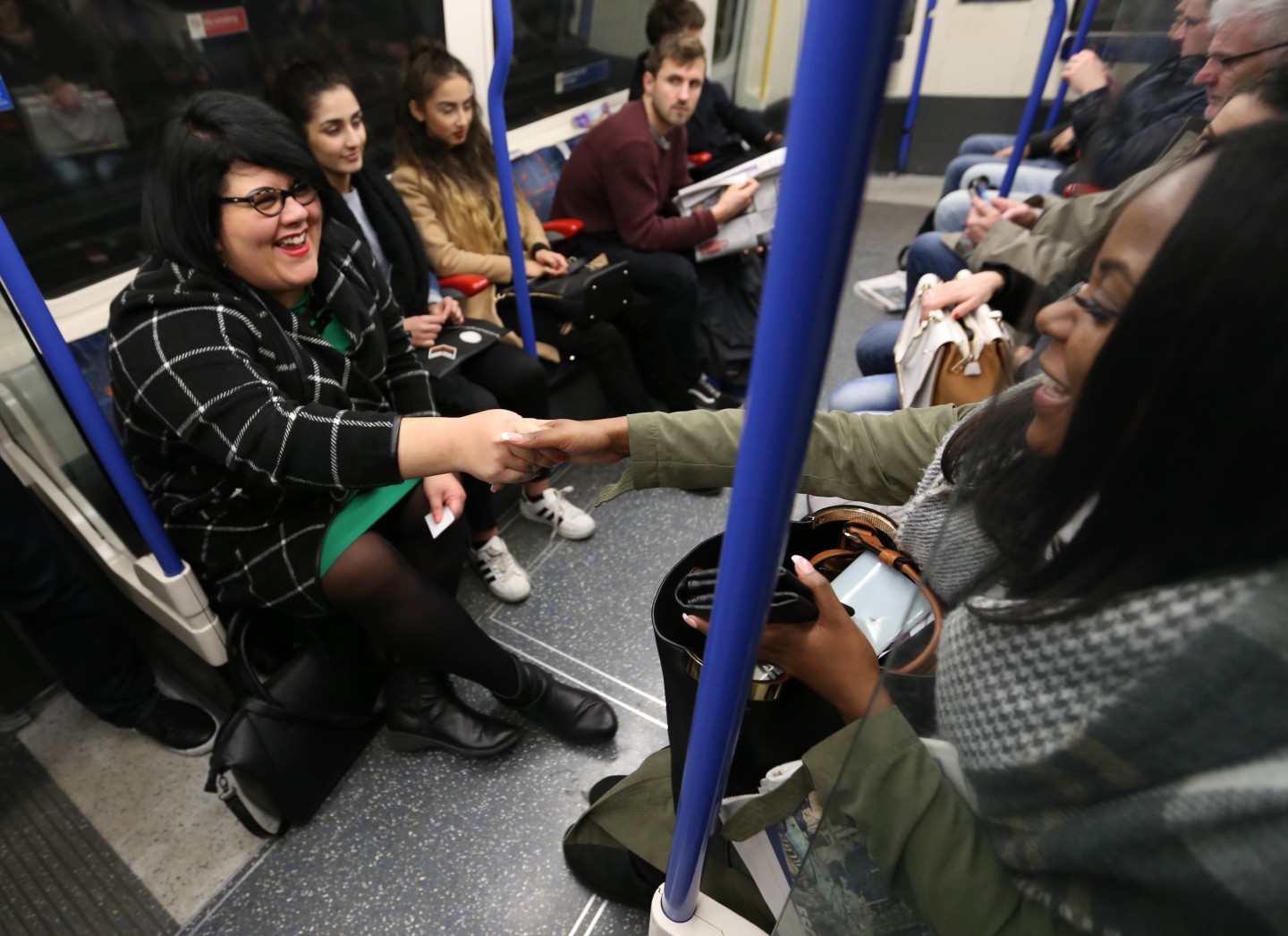What London’s Night Czar Is Actually Doing To Save Our Clubs
A conversation with Amy Lamé about how she plans to protect the city’s nightlife.
 Night Czar Amy Lamé
Courtesy of City Hall
Night Czar Amy Lamé
Courtesy of City Hall
Amy Lamé, 45-year-old broadcaster and comedian, has made a name for herself in London’s LGBTQ nightlife scene for being an outspoken trailblazer. A New Jersey native who moved to the U.K. at 21, she began her career in the mid-’90s with one-woman shows like Gay Man Trapped In A Lesbian’s Body and Cum Manifesto. For the past 21 years, she’s also run a raucous weekly club night named Duckie at The Royal Vauxhall Tavern, London’s oldest LGBTQ pub. Her candor extends to her left-wing politics, too: she was the ceremonial mayor of Camden in 2010, she stood (unsuccessfully) as a Labour party candidate in 2014, and, the following year, she launched an ongoing campaign to save the Royal Vauxhall Tavern from being renovated into apartments by property developers.
All of these things suggest that Lamé should make an excellent Night Czar — a role she was given in November 2016, by new London mayor Sadiq Khan, who promised during his campaign to tackle the problem of London nightclubs closing at an alarming rate. (London has lost about 35% of its music venues since 2007.) Lamé’s role was modeled after similar “night mayors” in Amsterdam and Paris, who protect the nightlife economies of their cities by mediating between nighttime businesses, residents, and authorities.
For some, Lamé’s outspokenness raised concerns about whether or not she was suited for the role. After her appointment, a small scandal erupted over some old, Conservative-bashing tweets. But in her new position, she actually comes across as somewhat more muted than in her activist past. At Nocturnal City, a panel about London and Berlin nightlife, held at London’s Somerset House in March, Lamé was warm and entertaining, but played safe when it came to difficult subjects. This was especially clear when an audience member asked the panel about the differences between London and Berlin’s approach to drug policing. Lutz Leichsenring, press officer for Berlin’s Club Commission, spoke about the importance of education and safety. When it was the turn of Lamé to talk, she clutched her mic and said nothing. After a few long seconds of silence, the panel ended.
Drug policy does not fall directly within Lamé’s remit, but it is an issue that has a direct impact on the nightlife economy. In September 2016, techno superclub Fabric temporarily lost its license when two teenage boys died after taking ecstasy at the venue. Lamé’s hesitance, on the panel, to speak on issues that lie outside of City Hall’s comfort zone raised a couple questions: what powers does she have, and how does her bold, boundary-breaking character fit into this new public official role?
Ahead of the Somerset House event, The FADER sat down with Lamé, who spoke effusively about how she hopes to preserve London’s marginalized spaces.
Could you speak on LGBTQ spaces, and why in particular they’re so important to protect?
Not everybody is always on apps, people want to meet in person — we are social human beings who crave connection with each other. That is why life at night is so important. People argue, “We’ve got equality now, we should just be able to go anywhere.” It’s great [that] we do have the right, but it doesn’t necessarily mean everyone is comfortable in those places.
With LGBTQ venues, it’s been really hard — we’ve lost quite a few. The challenges, unfortunately, are not unique to LGBTQ venues. These are issues that pertain to clubs and pubs across the board. But I think because our LGBTQ spaces are so few and so precious, we feel it much harsher.
Is protecting those venues a priority for you as Night Czar?
Saving all venues is a priority. But we keep a really sharp eye on LGBTQ spaces, in particular. I’m really pleased that just this week we had a new officer start at City Hall who is our Culture At Risk Officer. He’s going to keep a watching brief over all culture at risk, and that includes LGBTQ venues. It’s something that the Mayor is really committed to, and he is fully aware of the threat — he pledged his support to the campaign to help save the Royal Vauxhall Tavern. I feel confident in being able to do my job cause I know I have a mayor who supports that work 100%.
What else counts as “Culture At Risk”?
Pubs, clubs, artists’ studios — anything that can conceivably be considered culture. Within City Hall, the culture team that has quite a wide remit. Some people might say, “Pubs shouldn’t be culture.” But we feel very firmly that they should, because it is part of our culture here in London.
They’re very important working-class spaces.
Absolutely. Pubs are a real social leveller. We are increasingly seeing pubs being used as other kinds of spaces as well: function rooms, and mum and baby drop-ins. We’re very keen to explore how spaces can develop new offerings.
 Amy Lamé onstage at the Royal Vauxhall Tavern in 2015
Niklas Halle'n / Getty Images
Amy Lamé onstage at the Royal Vauxhall Tavern in 2015
Niklas Halle'n / Getty Images
“The number one reason people come here is for our culture, and our nighttime culture is a huge part of that. That includes clubbing, theaters, restaurants, live music — it includes everything that happens in the dark.”
How does the campaign you led to protect the Royal Vauxhall Tavern relate to your role now?
The campaign is still going on; I’m no longer the chair, I stepped down when I became the Night Czar, to dedicate myself 100% to this job. We have seen off quite a lot of threats [to the RVT], worked very closely with the council and loads of volunteers to get as much protection on the venue as possible. What I'm trying to do in my role as Night Czar is change the conversation. For so long people thought, It’s the council versus the venues, or, It’s police versus revellers. When actually what I’m trying to do is knock down those very stoic positions that have been in place for so long. The fact is that Lambeth council have been hugely helpful to [the RVT campaign]. I take my hat off to them really, for keeping such a close eye on the venue, and really valuing the LGBTQ history in their borough.
It does seem that a lot of mistrust has developed between some venue proprietors and their local authorities. Especially in east London — Hackney, for example. How are you working to bridge that?
Well, I was out with the mayor of Hackney last night. We went around Dalston and Shoreditch and visited loads of venues and met venue owners. I have to admit, in City Hall, we have limited powers, but what we can do is convene people around a table to actually talk and have the conversations that have not been had. And try to change the nature of that conversation away from, “The nighttime economy and culture is bad.” The nighttime economy is worth over 26 billion pounds to London, and it's set to grow by two billion in the next 10 years. We ignore it at our peril. The number one reason people come here is for our culture, and our nighttime culture is a huge part of that. That includes clubbing, theaters, restaurants, live music — it includes everything that happens in the dark.
What is a typical day for you as Night Czar?
This week, I delivered a speech at the United Nations International Women's Day launch event here in London. I talked to students at the Underground Music Society at Queen Mary University, and at Goldsmiths University. I attended the International Live Music Conference. Last night, I was working from three in the afternoon ‘til three in the morning doing my night surgery. We started out in Walthamstow, and ended up at Shoreditch Fire Station at about 3 a.m., with them being called out and sliding down the pole.
 Amy Lamé meets Londoners during one of her night surgeries
Courtesy of City Hall
Amy Lamé meets Londoners during one of her night surgeries
Courtesy of City Hall
What did you gain from that experience last night?
It was really interesting going to Homerton A&E and meeting the lead consultant. We had a really frank discussion on the reasons people were coming into A&E. Things around drug-taking, alcohol misuse, violence. It’s the sharp end of nighttime economy and culture, and it makes me value the amazing work the NHS [National Health Service] do to keep us safe. I met with the Community Safety Officer. Met with an MP. Met with a guy who runs a number of venues in Dalston. People queuing up to get into nightclubs. Security staff — the joy is is discovering all these amazing things that are going on.
I've noticed more and more dance music events in London are happening in the daytime; Printworks, the club that opened earlier this year, has a curfew of 11 p.m. It’s great to see new venues open, but there are so many issues around venues getting and keeping late licenses. Is that something that concerns you?
It’s on my mind a lot, because licensing is the key to a thriving vibrant nighttime economy. It was interesting to visit Waltham Forest; they have a very bespoke approach to licensing, whereas other councils are much more restricted in their approach. I think we are seeing emerging nighttime economies in places where maybe they weren’t previously known for [nightlife]. In a place like Westminster, for example, the feeling within the council is that they have very much reached their limit [of nighttime venues], but I think it’s okay. We have to be respectful of people that want to have a good night's sleep, and we need to be respectful of people that want to stay out till four in the morning. Maybe it means we are changing where we are going out, but that is the nature of a vibrant dynamic city.
The reason people want to live [in London], even despite the soaring rents and cost of living in the city, is because it’s constantly changing. We need to be a part of that change. That is what was so great about talking to the students at Queen Mary and Goldsmiths. They’re like, “How do we influence nightlife culture?” I was like, “Start a club! Start a night!” People keep saying, “Young people nowadays, they’re not interested in going out.” But I’ve met so many young people who are really working so hard to change things, to have things stay open late, to push the music boundaries. It gives me hope.